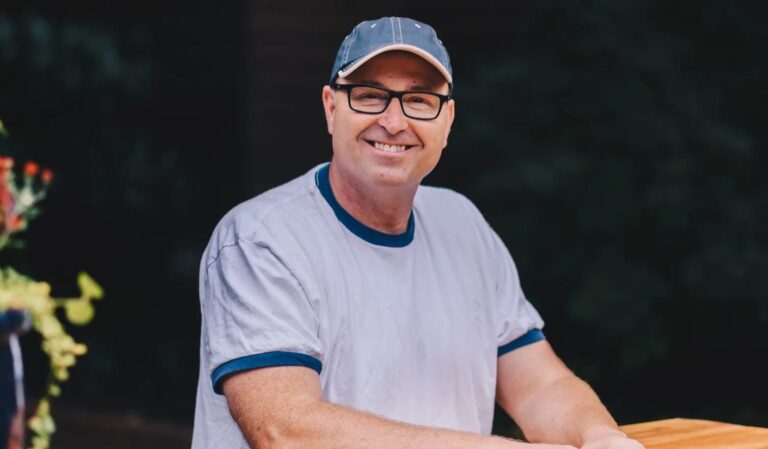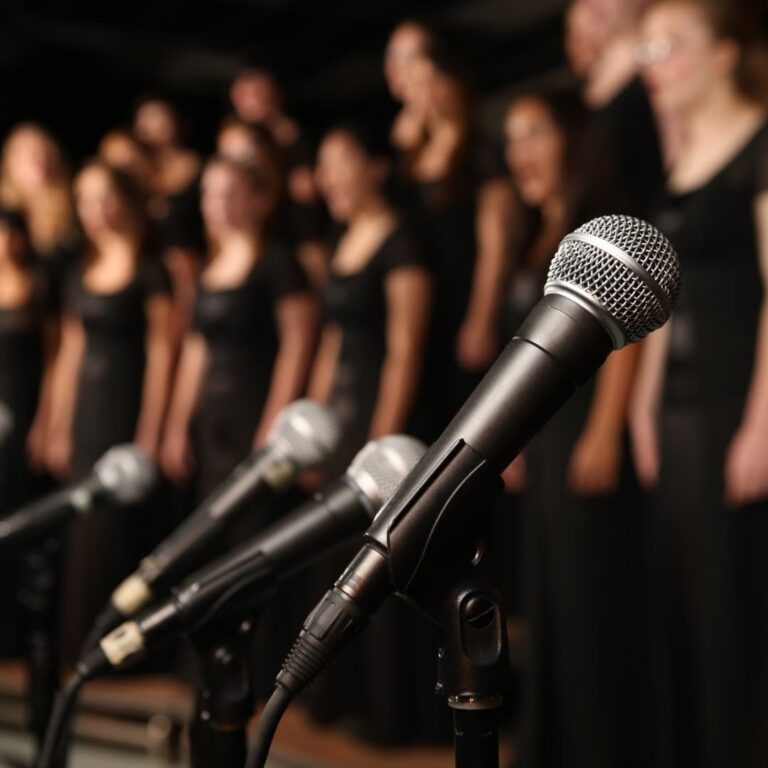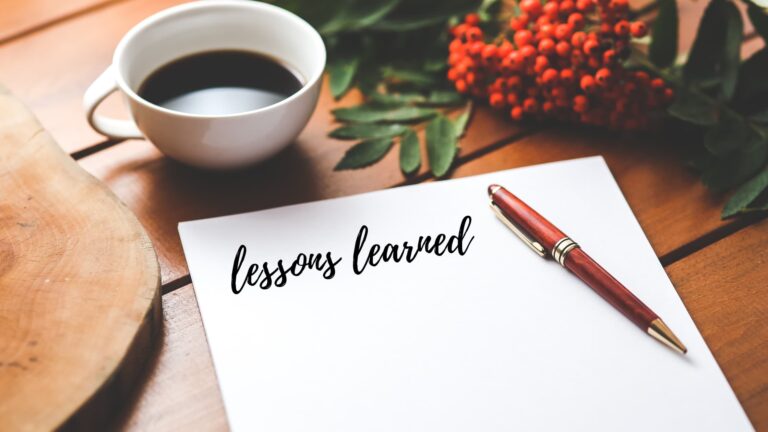Happy Anniversary Widow Squad! Insights from our first year
Can you believe it? The Widow Squad is celebrating its 1-year anniversary!
It’s been an incredible journey filled with growth, support, and deep connections, and we are so grateful to have you all on this path with us. As we reflect on the past year, we wanted to take a moment to share some of the highlights and lessons we’ve learned along the way.
Key topics in this episode:
- Embracing vulnerability is essential in navigating grief and life itself
- Loneliness can be isolating and disconnecting but you can do something about it
- Sharing our experiences and thoughts is a powerful way to feel understood and less alone
This supportive community has been a source of inspiration for all of us and today, we’re diving into some of the remarkable insights and experiences that have shaped the last year. From meaningful quotes that have provided comfort, to impactful testimonials that underscore the significance of this community, to what we love most about the membership, we’ll explore what sets the Widow Squad apart.
As we celebrate this one-year milestone, we want to express our deepest gratitude to our membes, guest speakers, and everyone else who has a hand in making the Widow Squad community so extraordinary.
We are excited for the many more years of support, understanding, and growth ahead!
Listen to the Full Episode
Links + Resources From This Episode
- Are you searching for emotional support, practical advice, and guidance on navigating widowhood? Join us in the Widow Squad membership
- Follow us on Instagram and subscribe to our YouTube channel
“This isn’t your normal grief group. This group is full of people who don’t want to stay stuck. They want to do something about it.”
Episode Transcript
Jen: Hey there, and welcome back to the widow squad podcast. It’s Jen here along with my co-hosts and cofounders of the Widow Squad, Kim and Melissa.
Today’s episode is a special one. We’re celebrating the one-year anniversary of our Widow Squad membership. This journey has been filled with growth, support, and deep connections, and we’re so excited to deep dive into some highlights and what we’ve learned together.
So, let’s kick things off by discussing some of the most profound lessons we’ve learned over this past year.
Kim, what’s a lesson that’s really resonated with you?
Reflections on a Year of Growth and Connection
Kim: There are so many lessons. Like, it’s been almost 10 years for me, you guys. There are a ton of lessons. But I think the most profound one is really being vulnerable. So, for me, one of the biggest lessons that I’ve learned is that vulnerability is the key to feeling your feelings and getting through grief and pretty much getting through life.
Because I know for me, I like to make other people think I have everything figured out. And that’s a horrible way to live, and you shouldn’t live that way because nobody has it figured out. Right? Most of my life I was like, I can do this. I can fix this. I can make this okay.
We’ll get it done, whatever it is. And then your husband dies, and all that goes out the window. Right? So, everything you could fix, everything you could do, everything that was manageable is no longer fixable or manageable. When you try to keep that persona and try to keep that going, it’s a recipe for disaster. It took me several years. I mean, I didn’t feel my feelings for the first couple of years after my husband died because I didn’t want to be in that heavy grief space, but you have to be in that heavy grief space because it doesn’t go away.
Once I finally actually started admitting how hard things were for me and explaining that I did not have it all figured out, everything changed. I realized I wasn’t supposed to have it all figured out.
Melissa: It takes the pressure off.
Kim: That was a huge weight lifted off my shoulders. I think most of us widows feel like we should know what to do. And we don’t know what to do. We’ve said this before. No one knows how to be a widow until she is one. So, expecting to know how to get through grief and just life in general as a grieving person, as a grieving solo parent, whatever, is extremely difficult. We need to give ourselves a little bit of extra grace to just figure it out. That’s key.
Vulnerability was foreign to me. I’ve never done that before. It was a learning curve for me. I’m really glad that I finally did it.
I’ve met so many interesting people who are so happy to hear someone else speaking about their vulnerability that they share theirs too. And it’s like, wow. Now I’ll meet people and just throw something out there. You know, someone you’ve just met or maybe somebody that you’ve met a couple times but haven’t really had a deep conversation with. And then I’ll throw something out there about something that happened in my past, and they’re like, “wow, I’m really glad you said that because this thing happened to me.”
And you’re like, this is amazing. What actually happens when we’re honest with each other? When we say, “this sucks.” Or “this was hard.” Or “I don’t know what to do or how to feel.”
So, anyway, that’s my profound lesson. Vulnerability was the key for me. I still struggle with it sometimes. I’m not gonna lie. But I think when I am consciously being more vulnerable, I have a better life experience.
Jen: It’s hard because you’re putting up that facade. It’s too much energy to be so fake all the time.
Melissa: I think we all like to present, like, yeah, I’m cool as a cucumber. I’ve got this all put together. I got everything figured out. That’s the persona. That’s the facade, but we really don’t inside. And I think that’s true for everybody.
Nobody has this all figured out. Everybody’s trying to present like they’re cool but being vulnerable is another thing. I don’t like being vulnerable, the v word, but, you know, when you are, it’s a way to connect with other people. That’s all we want is connection.
Kim: That connection is key. I can’t even begin to tell you how many people have actually taken a deep breath and said, “I’ve never told anybody this. Thanks for sharing that with me. I’ve never told anybody, but this happened in my family.” And I’m like, oh my gosh. This is crazy.
Jen: We equate vulnerability with weakness. Nobody wants to admit that they are weak and that they can’t handle something. You know?
Kim: And it’s not weakness, and we know this now. We didn’t know it then. I didn’t know it then. I know it now. So that’s the benefit of our collective wisdom for newer widows. Yeah, we didn’t have it figured out. You don’t have to have it figured out. But just sharing your story with other people, you’ll find nobody has it figured out.
And you’re not supposed to. You’re supposed to learn as you go.
So, Melissa, what are the profound lessons you’ve learned so far?
Melissa: Well, I kind of want to piggyback on vulnerability, but, also, being super aware of how we talk to ourselves internally. I think we make a lot of assumptions about other people. I mean, we make assumptions about their lives, whether it’s on social media or they’re walking down the street, and we’re assuming they have it all together. What’s wrong with me? Why can’t I be like that person? Or why can’t I cook and do meal prep and get the kids to school and do all these things? Just noticing that loop that’s going on in your brain comparing yourselves to other people. So, for me, even this past year and beyond, and it’s a continual process, but really being aware of how I’m talking to myself, stopping that negative loop, and trying to engage with myself in a better way. And so, I’ll sometimes find myself saying things out loud to myself like, “stop.”
I will notice the loop going on, and I will just, out loud, say “stop.” And that generally helps with the process, with stopping all those negative thoughts. But, the other day, I think I was walking down the street and I just noticed how I was thinking, I should be doing this. I was “shoulding” all over myself. I should be here. I should be there. I should be this and that and the other thing. And I just said “stop.”
And nobody heard me. Nobody stopped in the street. But I replaced that with, “Wow. You know, you’re doing a lot of hard things. And look at what you’ve done in the past. Look at all you’ve moved through.” And that’s true of every widow and anybody who’s not widowed listening to this podcast, but we’re moving through hard things. And I want to tell you to stop “shoulding” on yourself. You should be exactly where you’re at.
Just be really careful about how you talk to yourself and try to replace that with just something nicer and just acknowledging how good you’re doing with what’s been given to you in this life. You’ve been dealt a pretty crappy hand. And just acknowledging that and how you’re moving through whether it is. I took a shower today – good job. You know, I got out of bed. Yeah. I’m amazing.
Did you see how well I brush my teeth? Damn. You know?
Kim: It’s so important. Those words are like huge. And it’s even more important coming from yourself. Like, I could tell you, Melissa, you’re doing a great job. Jen, you’re doing a great job. You’re amazing. You’re this. You’re that. That’s great. You’re like, yeah – whatever.
But if you’re telling it to yourself, then you’re like oh, hi. I’m listening. You’re speaking to me, and I’m listening. So those internal words are huge.
I love that point because we all get stuck on those awful, terrible, negative loops. You have to be aware of it. I don’t know about you guys, but it takes a while to get to that point, to be aware.
Melissa: It’s a learning process. We’re constantly learning and growing. This is not something that’s automatic for me. I want to get to a point where it is and where I notice that loop and just say “stop” and then replace it with something else. At least once or twice a day, acknowledge what you’re doing and what you’ve accomplished. It doesn’t matter how big or small. It’s personal to you. You know?
Kim: Well, like you said too, you have to not compare yourself to other people. But when you’re assuming that the person you see is one way, you really have no idea. Those are just your own thoughts in your head. That’s you speaking to you about the situation, and you don’t know.
I think that’s another key that you mentioned is we can’t know what someone else is going through regardless of how they present themselves, which we just talked about. So don’t compare your beginning to someone else’s middle. Because widows who are farther along than you, there’s no comparison there. Newer widows are in that deep pit. And when you’re in the middle, you’re kind of clawing your way out. So that comparison just doesn’t work, so don’t do it.
Melissa: And I love, when we have our weekly meetings and some people will just be rapping and talking, and then they’ll we’ll start to hear them saying, “well, I should be doing this, or I can’t believe I didn’t take a shower today or I can’t believe how bad I look” or whatever. And then we all come together and we tell them, “wait a minute, hold on…”
We’re that voice for them. Like, stop. You’re doing great. Where you’re at right now is perfect, and the fact that you even showed up on this call is amazing.
Kim: Well, it’s not even just saying that. It’s, like, actually repeating back to them what we know they’ve done. You did this, this, and this. Remember last week when you said this and last month when you said this? And then people are like, “wow. I forgot about that.”
You forget about it because you’re telling yourself mean things in your head. So, the good stuff goes out the window and the bad stuff remains.
Melissa: It’s nice to be that mirror for people. To hold that mirror up for them and reflect back to them. Wait a minute. This is what we see, and this is what we hear. And this is what we noticed you accomplished four weeks ago and look at where you’re at now.
Jen: It does happen all the time.
Melissa: It does.
And what about you, Jen? What are some lessons?
Jen: Well, I mean, of course, there are so many, but the number one thing that I always go back to is loneliness. That’s the number one thing that widows deal with. And the number one thing when we ask, “what’s your what’s your biggest struggle?” It’s always loneliness. Of course, it is. Of course, it is. Okay? I just want to start off with that. Of course, it is. Your life is completely different. It’s completely changed.
With loneliness, there are a lot of lessons learned over the years because I struggled with that. There’s loneliness in motherhood. You know? There’s loneliness in missing your best friend that you’ve shared everything with. There’s loneliness in that intimacy. I mean, there are all these varying different parts of loneliness, and it all just cumulatively just comes together and you feel so isolated.
My biggest lesson with loneliness is also taking responsibility for what I can do about that loneliness. It’s hard because you’re grieving, but then you also have to put in some effort to make yourself available for friendships and for connections, getting out there, and inviting other people into your life at a time when you really want to kind of close in on yourself. It’s this push and pull. You know?
Part of you feel like you just want to curl up into a little ball and just go sit in a corner for the rest of your life, but you’re lonely. You’re lonely there, but you’re also healing. So, you need that too, but then this loneliness just overtakes you. There’s a responsibility of doing something about it and taking action about putting your energy into putting yourself out there and doing things. With loneliness, the cure for loneliness is to share what matters to you. You know?
Melissa: Share your experiences too.
Jen: Share what matters to you. What is on your mind? What is on your heart? And this could be something that you are going through that entire month. It could be something that just happened that day. Was it a conversation that you had with your in laws? Was it a really tough conversation that you had to have with your kids, something that is really weighing on you and heavy on you and that really matters to you, you wanna share that. That’s what makes you feel less lonely in the world. So it’s finding those connections. It’s sharing what’s in your heart.
Which is why I love our group so much is because this is where you can come and be vulnerable. This is where you can share all of those thoughts and the heavy things that are on your heart and the vulnerability. You can put it all out there, and we all understand it.
Kim: Because most of the time, widows are saying to themselves, no one knows what I feel like. No one knows what I’m going through. So that keeps you in that lonely space because you’re convinced in your own mind that nobody can understand what’s happening, which isn’t true. So back to your point, Jen, that’s what the membership’s about too.
You can’t listen to those voices telling you things that aren’t true.
Jen: And, again, back to what we said about not just sharing the hard things and not just sharing the struggles but being able to share your accomplishments too. Share what matters. I went out, and I joined this cooking class today. That’s amazing. Share it. You know? Tell people about it.
It’s important to you. It makes you happy. So, again, this is a place where you can come and share your struggles, and then you can also come and share your awesome accomplishments and things that you’re getting done.
Melissa: We just had a meeting last night. And when somebody’s sharing, we do it on Zoom, you can see everyone’s heads nodding. Yep. Yes. We totally understand because it’s important to share your vulnerabilities and what’s going on in your life with people that I understand.
There are certain things I don’t share with my family or whatever because I know that they’re just not the people who will get it. So yeah. I just love that. You can just see all the heads are nodding. Yes. Yes. We got you. We understand. We know it.
So, let’s shift gears a little bit, with some quotes. You know, we all have those quotes that have touched our souls, and especially in moments of grief and healing.
Inspiring Quotes on Resilience and Bravery
Kim: Yes. So, this is one of my favorite quotes and it comes from Dr. Seuss because I adore Dr. Seuss’ books. I probably have all of them, And I read them to my kids. And I still read them, by the way, just so you know. And I love them. I love Dr. Seuss. But the one that really sticks out to me is just so simple, you guys.
When you hear it and you really listen to it, you’re like, wow, that’s profound, Dr. Seuss. So, this is what he says:
“Be who you are and say what you feel because those who mind don’t matter, and those who matter don’t mind.”
Melissa: Oh, that’s perfect.
Kim: Right! So, again, back to the thoughts in your head. You know, we have to get good at not worrying about what other people think about our grief and our sadness because it is what it is. I mean, you can find the people who don’t mind when you say what you feel. Like our group, right? We don’t mind. If someone minds, then they’re not your people. And that’s not who you have to worry about convincing.
I think I fell into the trap early on in widowhood that I had to convince you why I was so despondent, why I was so full of grief. But people don’t understand. Either they don’t want to, or they just don’t. But when you stop trying to convince those people of why you have the depth of sadness that you do, then you don’t have to worry about that anymore.
Just be with the people who don’t mind when you talk about it, who’re okay with your grief, they’re okay with your sadness. And they’re willing to listen.
So that’s one of my favorite quotes.
Melissa: I love that. It’s powerful.
Jen, do you have one that’s been a like a beacon for you or a quote you just really love guides you?
Jen: So many. I’m a quote junkie, but I just wanted to pull the one we have in our monthly packet that we give to everyone every month. We have a quote that we put in each month. And this month’s October packet quote is from Paulo Coelho, and it says:
“Don’t allow your wounds to turn you into a person you are not.”
I really like this because it’s a good reminder of what we can let happen if we allow our grief to just overtake us and turn us into a bitter person. There’s another expression that says better, not bitter. I don’t know if you’ve heard of that one before.
So, you know, allow what you’ve been through to change you in a better way and not make you become a bitter person because of it.
Kim: That’s a good one.
Melissa: That is really good.
Jen: Not to let it harden you and not to let it let your circumstances change you.
So, Melissa, what about you?
Melissa: So, this one I was just reminded of in a meeting we had last night, so it hasn’t guided me this whole year, But I love it. It’s from the movie We Bought A Zoo. There’s a little backstory here. The first Christmas after Dave died, we started a new tradition of going to the movies on Christmas afternoon. The movie We Bought a Zoo, came out that year. And I knew that it was a story of a widower who bought a zoo, and that’s basically it. But we went to this movie, and I cried and thought it was really good. It was good for the boys and I to see it.
But anyway, this quote is from the movie. The quote is:
“You know, sometimes all you need is 20 seconds of insane courage. Just literally 20 seconds of just embarrassing bravery. And I promise you something great will come of it.”
You don’t know the future. You don’t know what’s gonna happen in the future. The three of us all have lives that we never predicted we would ever have. Just that 20 seconds of insane courage, you don’t know where that’s gonna take you.
That’s a baby step. Twenty seconds is a baby step.
Kim: Well, if you put it into perspective like that, that’s literally the whole crux of that. It’s 20 seconds. It’s not a year. It’s not a day. It’s not twenty days. It’s 20 seconds. So, when you think to yourself, like, yeah 20 seconds.
Jen: I know. And I’m sure we’re all thinking back, these 20 seconds of my life changed my life. It really did.
Melissa: We’ve had a million 20-second intervals.
Jen: It’s crazy to think about it like that. Like, that’s awesome. I love that one.
Melissa: I love that one.
Kim: Now I’m thinking I should write that down and put it on my computer because it also says what does it say? Embarrassing bravery?
Melissa: Embarrassing bravery. Yeah.
Kim: I mean, sometimes, what’s embarrassing to us in our minds is not embarrassing to others. Just jumping out of your comfort zone. That’s a good one. I need to put that on my computer.
Melissa: I think we should all do that. I’m gonna print that out. Because then also, you know, those acts of courage, those 20-second boosts of confidence, add up. You know? Like, when you do something, and it pays off. You’re like, wow. I did that. I can’t believe I did that. Well, what else can I do?
Because, you know, in widowhood, your self-esteem and your confidence have taken a hit. It’s at an all-time low. So, it’s also a great way to kind of start building up your confidence and your self-esteem a little bit.
Kim: Good point.
Testimonials and Feedback from Our Community
Kim: So, getting feedback or testimonials from our members has been a huge motivation for us. It’s important for us to hear from our members what’s been beneficial for them.
I want to share some testimonials or feedback that we’ve gotten from our Widow Squad peeps.
Jen, what’s the best testimonial or feedback that you’ve heard from our community this year?
Jen: Okay. One of the best ones and one that I really love came from Penny. And she said:
“This isn’t your normal grief group. This group is full of people who don’t want to stay stuck. They want to do something about it.”
I love that she says we are not a normal grief group. I hear this a lot too because we’re not. We’re not.
It’s not all doom and gloom. You know? We get together. We are comforting each other, yes, with our grief and struggles and things, but we also share this determination to rebuild life and this determination to find a beautiful future and rebuild our lives, find happiness, and find joy, and find purpose. A lot of our group is positivity, which is not your normal grief group, and that’s what we strive for. And so I love that, that she said that about our group.
Kim: Yep. That’s a good one. We’re not the normal grief group. Lots of positivity, but also Realism. Realistic perspectives. I know in the past, people have accused me of being a pessimist. I said, “I’m not a pessimist. I’m a realist.” There’s a difference between pessimism and realism. We’re real. It’s real stuff, not just rah rah sis boom bah all the time.
We do a lot of that, but it’s also realistic, which is great.
Jen: It is encouragement. That’s what it is. That’s what it’s all about, basically.
Melissa, what about you?
Melissa: I don’t have one testimonial because I love them all. And you can read all of them on our site. We have a little section if you want to go in and check out all our reviews.
But just in general, when I’m on the weekly calls and I’m just observing people share what’s happening in their lives and how they’re feeling stuck, or they have felt misunderstood by the world because the world just wants us to be okay and go on our way. But when they feel misunderstood and they share, I can actually see in people’s bodies just that sense of relief. And they’ll verbally say, like, “oh my gosh. Thank you so much. I’m just I haven’t I can’t talk to anybody about this. I can’t talk to anybody about what I’m moving through.”
So, the general feel of those meetings is just really powerful, and that’s a testimonial.
Kim: That’s a good point.
Melissa: It’s not a grief group per se. We do talk about grief. Grief is just the underlying undercurrent through everything that we’re doing. But I think what we’re doing here, we attract people who want to rebuild their lives. They want to move forward. They just don’t know how, you know.
And they and they need some encouragement, and they need some steps, and they need some tools, and they need some strategies. So, I guess that’s my testimonial.
Kim: We’re recording this. Let’s transcribe that and put that on the website too. That’s a great testimonial.
Melissa: Just in general, I love just seeing people’s faces, their bodies, just that relief of being amongst women, widowed women, who truly, truly understand this experience.
What about you, Kim?
Kim: I like them all too. So, it is hard to pick one, but there’s one that just jumped out at me, and this is from Lynn. And she says:
“Wow! The ideas that you all come up with, these topics are things I never would have thought of. This has been such a great resource for me.”
The reason I like that so much is that my mission since the day I was widowed was to provide resources for widows. So that’s just a huge feedback and testimonial that she is finding the resources that she needs.
And finding topics she never thought of because, let’s face it. When you don’t know what you’re doing because you’re first widowed, or even, you know, a seasoned widow still doesn’t know what she’s doing all the time, it’s wonderful that we have these people coming to us that are learning and absorbing and understanding and commiserating. So that was one of my favorites from Lynn.
Melissa: And if you’re curious, just go to our website because there’s a lot of other reviews there.
Our Favorite Aspects of the Widow Squad Membership
Melissa: Now this is kind of a fun one. If you had to pick your absolute favorite thing that we offer in the Widow Squad membership, what would it be?
So, Kim, do you want to start us off?
Kim: My favorite thing is our guest speakers. That’s a big portion of our membership other than obviously our members, but we get a lot of guest speakers that come in every week and talk to us, and we have so many unique and informative and resourceful speakers. It’s like crazy how many amazing people we have coming in to talk to our membership. A lot of these speakers are widows, too. It’s so inspiring to see so many widows doing so many wonderful, impactful things, and then coming to share it with us. That’s my best part of the membership is just seeing all these incredibly resourceful, informative, amazing speakers.
Melissa: Yeah. I love that too. And I love that we bring in widow entrepreneurs, widowed business people, widowed people who understand the experience and also say, “here’s a tool or a strategy to help you with whatever you’re moving through.”
Kim: We see it week after week. But when you look at it collectively, like, over the past year, it’s kind of mind-boggling. Really. It’s like, “wow, we’ve got it goin’ on here in the Widow Squad, ok?”
Melissa: You know, these things weren’t available to us when we were moving through our experience, so let’s pay it forward. So, like you said, we’ve got it goin’ on.
Kim: So, Jen, what is one thing that you’re particularly pumped about in the widow squad?
Jen: Okay. So one of the things that I love, of course, is our weekly meetings because we’re bringing in all these amazing people.
But there’s one thing that I do with it. I put together a monthly packet. Our monthly packet goes out on the first of the month, and it includes our calendar for the month. It includes all the events and things that we have happening. It also includes some kind of exercise. Once a month on one of the Wednesday night meetings, I lead a packet review night where we have some kind of exercise that we get to do together. And I’ve heard from a lot of our members too that they really love this because it’s kind of like accountability, but it’s also reflective exercises. It’s goal making exercises. You know, we talk about our future self and kind of looking into the future. We do visualization exercises, and then we also bring in some of some grief exercises as well and some, sharing memories, journaling, that’s one of the things that I love just because I get to do it and I get to lead that meeting and go through these exercises with everyone and share and hear their thoughts and hear their goals and hear their memories too of their loved ones. So it’s really nice.
Melissa?
Melissa: For me, I love the book club. We’ve read a couple of pretty incredible books. The last one we read was Lessons in Chemistry, by Bonnie Garmush. And now, I think Apple TV is airing it right now. Apple TV’s, made amazing reads out of it. That was a fiction book, but, you know, it’s a widowed central character. So that was really cool.
But prior to that, we’ve had a couple books that are nonfiction, like, The Universe is Talking to You. That was a really cool one. We got to share about our experiences and also get some tools and strategies too. If that’s your belief system, if you want to try to contact or look for signs and synchronicities, here’s ways to do it. So that was a really cool one. We read The Four Agreements. So, yeah, we try to do a couple books a year, and the book club’s got a great response.
I love coordinating it and reading the books. It forces me to read a book and get away from my computer or from doing some of the Widow Squad back-end stuff. It’s doing something that I enjoy and then sharing that and then having the folks in the group gather and talk about it.
Kim: Book club is very popular.
Exciting Future Events in the Widow Squad Membership
Kim: So we’ve talked a lot about what we’re reflecting on in the past year with the membership, but we’ve got some exciting events coming up in the future. So, let’s talk about some of those things.
Jen, do you have an event that’s coming up that you are particularly interested in sharing with us?
Jen: Well, I have started to look into next year because we’re already into November, my goodness. I’m looking at the calendar for our upcoming guests, and I love it. We have so many different guest speakers on the calendar that are gonna be coming up, all kinds of topics, all different specialties. There’s a somatic therapist. We’ve got widow coaches, life coaches, gratitude experts. A topic that came up in one of our meetings was to have an expert come in to talk about starting a side business because a lot of people are getting into crafting or they’re finding hobbies. They want to start a little side hustle. How do I get my things on Etsy? So, we’re talking about having an expert come in to guide us through that.
The topics that we are sharing, the resources that are coming to us, are just amazing. I’m super excited about next year, all of our guest speakers.
So, Melissa, what about you?
Melissa: I’m really excited because my friend Amanda Ferrett, who is an EFT practitioner, is coming into the Widow Squad membership to do a workshop on EFT. So, EFT stands for Emotional Freedom Technique. Sometimes people call it tapping.
She’s gonna run us through an exercise and tell us what it’s all about. And that is actually something that I used myself to help me. It was a really good tool to calm myself when I was feeling anxious or whatever I was moving through, and I needed to calm down. EFT tapping is amazing.
But the beauty about these workshops and when we bring in speakers, most of them are recorded. Because we have folks who are international, and they’re maybe eight or nine, even 10 hours ahead, and it’s the middle of the night for them. So, we record the meetings, and we have the replays housed in the membership. If you can’t attend that meeting live, you can watch a replay on your own time.
We’ve gotten a lot of feedback from some of our international folks or just folks that are just busy at that time. They’ll go back and watch the replays, But I am excited for Amanda to come and show us EFT tapping.
Kim, what about you?
Kim: Well, can I share my own event?
I’m leading a workshop on training your brain to think better thoughts. And I love this topic so much because we think our thoughts are true just because we think them, and they’re not. The the sad fact is the longer you think a certain thought, the more believable it is. So we’ll get into separating facts from feelings and identifying optional thoughts. Because these are key strategies in helping you feel better about those pesky thoughts in your head. So I’m excited about that. That’s coming up next month.
Melissa: I am super excited about that too because I don’t like pesky thoughts in my head.
Kim: I want those pesky thoughts to go away.
Wrap Up
Melissa: Wow. So, this has been a really enlightening conversation, just reflecting on our one year together.
From lessons to quotes, to testimonials, and everything in between, this journey with the Widow Squad community has been incredibly rewarding. Here’s to many more years of support, understanding, and growth.
And, you know, remember, listeners, if you want to be part of this journey and experience the support firsthand, head on over to our website to learn more about the Widow Squad membership.
Thanks for being with us today and for all the love and the support this year. We truly are stronger together.
Until next time.
Take care.







